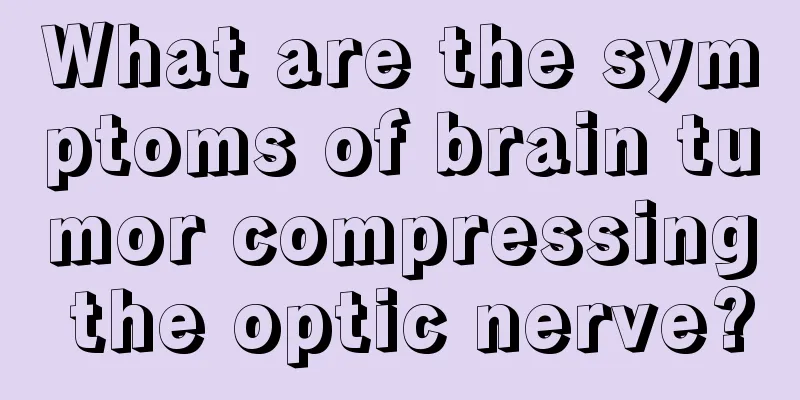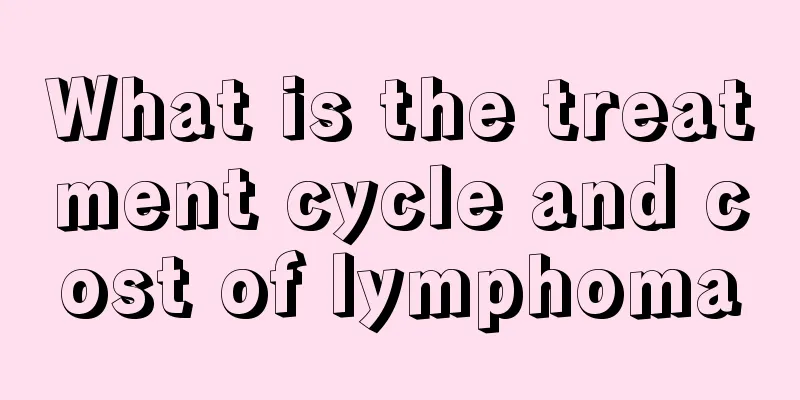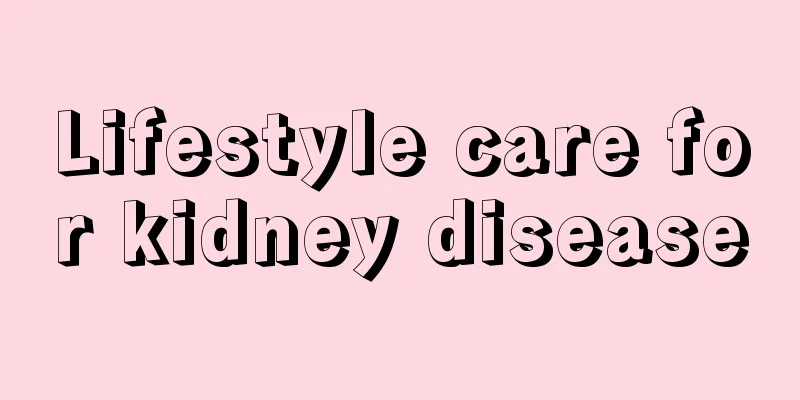What are the symptoms of brain tumor compressing the optic nerve?

|
If a brain tumor compresses the optic nerve, the patient will experience progressive vision loss and will also experience dizziness, headaches, and other phenomena. Many people think that these symptoms are caused by eyestrain, but in fact, this may be a sign of a brain tumor, so it needs to be taken seriously and checked actively. 1. Brain tumor patients will experience progressive vision loss, accompanied by dizziness and headaches, which are often mistaken for eyestrain. If the disease is neglected and misdiagnosed, and medical treatment is sought only after blindness, the brain tumor can be removed surgically, but the possibility of restoring vision is very slim. 2. The human eyeball is like a miniature camera, with a cerebral canal and choroid that are like a darkroom; a pupil that is equivalent to an aperture; a lens that has a focusing function; and a retina that is similar to a photosensitive film. When there is a "failure" anywhere in the eye, optic nerve, and visual center, visual impairment will occur. The optic nerve that governs visual conduction has some nerve fibers that cross left and right as they run in the brain, and the surrounding area is a high-incidence site for pituitary brain tumors and craniopharyngiomas. Because the early symptoms of the tumor are not obvious, once the tumor gradually increases, compression of the optic nerve chiasm can cause optic nerve atrophy, leading to a sudden drop in vision or even blindness. 3. In addition to causing progressive vision loss, brain tumors are often accompanied by visual field defects. In order to see the full picture of objects, patients often need to tilt their heads and squint. Headache is one of the main symptoms. If the tumor is located at the intersection of the optic nerves, the pain is often felt in the bilateral temporal, forehead, back of the orbit, and root of the nose, and is a distending pain. If the headache is severe and accompanied by nausea and vomiting, this indicates that the tumor has entered the late stage of increased intracranial pressure. In short, anyone with decreased vision accompanied by the above symptoms should be given high attention, and efforts should be made to achieve early diagnosis and timely surgery to achieve the possibility of partial recovery of vision. |
<<: What to do if you have mental stress and insomnia
>>: What should not be eaten with King Oyster Mushroom? Four aspects to pay attention to
Recommend
What should I do if my stomach problems persist?
Gastric disease is a relatively common chronic di...
What causes muscle tremors? Causes of muscle tremors
You may be unfamiliar with muscle tremors, so wha...
Does amoxicillin reduce fever?
Amoxicillin should be an anti-inflammatory drug t...
What are the hazards of oil smoke to human body
In daily life, three meals a day are necessary, s...
Types and symptoms of hemorrhoids
Hemorrhoids are a very common disease in people&#...
What is the reason for getting angry easily
Getting angry is actually a symptom that many peo...
When is the best time of day to enlarge your breasts?
If women want to have breast enhancement, they ne...
The fastest way to reduce swelling on your face after drinking
Many people cannot avoid drinking at the dinner t...
What should I do if my husband always snores at night?
Snoring is a condition that many people suffer fr...
Can bananas reduce internal heat?
Banana is a very delicious fruit and has the effe...
How many days does targeted breast cancer treatment usually require hospitalization?
The specific number of days of hospitalization fo...
Effects of drug residues on the fetus after recovery from colorectal cancer
In fact, a disease like colorectal cancer is a ve...
What tests are needed for thyroid cancer
What tests are needed for thyroid cancer? Thyroid...
What are the main daily medications for teratoma patients
Teratoma is a common disease in women. It is a be...
Life tips that can save lives are important!
1. How to clean the glass on the ground If the gl...









